Disclosure: This article contains affiliate links. We may earn a commission from purchases at no extra cost to you, which helps our travel content.
The crisp October air carried the scent of freshly baked bougatsa as I stepped out of Thessaloniki's airport, reminding me why Greece's second city had been on my archaeological bucket list for years. Unlike its showier sibling Athens, Thessaloniki doesn't flaunt its treasures—it reveals them gradually to those willing to look beyond the obvious. With fifteen UNESCO World Heritage-listed Byzantine monuments, a waterfront promenade that rivals any in Europe, and a culinary scene that had me extending previous research trips by days at a time, this northern Greek metropolis offers the perfect weekend escape for couples seeking cultural immersion without the crushing crowds of more famous Mediterranean destinations. Having guided specialized tours through Greece's historical sites and returned multiple times on my own dime, I've crafted this 48-hour itinerary to help you experience the soul of this 2,300-year-old city—from sunrise coffees alongside locals to twilight ouzo sessions with views that would make the ancient Macedonians proud.
Day 1: Morning – Byzantine Beginnings
Start your Thessaloniki adventure where the city's heart truly beats—in its UNESCO-listed Byzantine churches. After fortifying yourself with a traditional Greek breakfast of yogurt, honey and fresh fruit at your hotel (or better yet, join locals at Estrella on Pavlou Mela Street for their famous bougatsa), head to the magnificent Rotunda.
Built in 306 CE by Roman Emperor Galerius, this cylindrical structure has served as a pagan temple, Christian church, and mosque—a physical timeline of the city's layered history. The surviving mosaics inside are among the earliest and most important Byzantine artworks in the world. I still remember standing beneath the dome during my first visit, neck craned upward, completely losing track of time as I traced the intricate patterns with my eyes.
From here, it's a short walk to the Church of Agios Dimitrios, dedicated to the city's patron saint. Don't miss the underground crypt where Dimitrios was allegedly imprisoned—now a small museum filled with artifacts spanning centuries. The sense of historical continuity here is palpable; during my last visit, I watched as elderly locals kissed icons that their ancestors might have venerated a thousand years ago.
Complete your morning with a visit to the Archaeological Museum of Thessaloniki. While smaller than its Athens counterpart, its collection of Macedonian treasures is unparalleled. The gold wreaths and intricate jewelry excavated from royal tombs remind us that this was once the kingdom of Philip II and Alexander the Great. I recommend bringing a compact travel binoculars to appreciate the minute details of the goldwork that might otherwise be missed behind display glass.
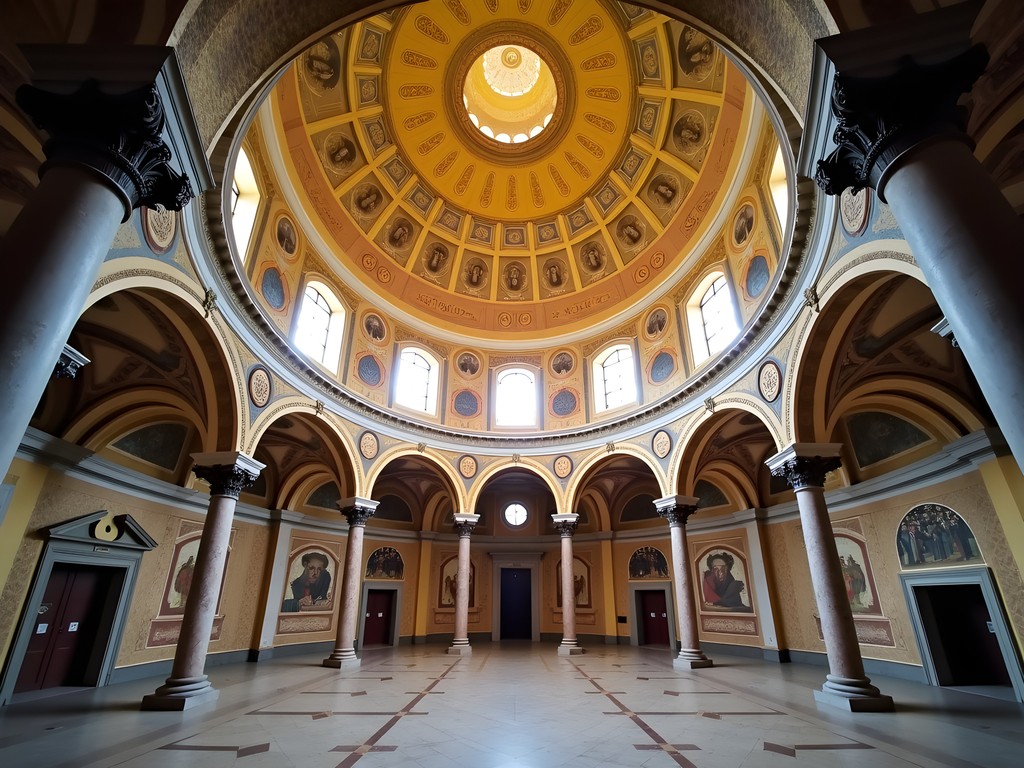
💡 Pro Tips
- Visit the Rotunda early to avoid tour groups and appreciate the mosaics in quieter surroundings
- The Archaeological Museum offers free admission on Sundays
- Many Byzantine churches close during Greek Orthodox services, so check times in advance
Day 1: Afternoon – Ladadika & Waterfront Wanderings
After a morning immersed in Thessaloniki's ancient past, treat yourself to a leisurely lunch in the Ladadika District. This once-dilapidated oil merchants' quarter has transformed into the city's most charming dining area. The pedestrianized streets are lined with tavernas spilling onto cobblestone pathways. My personal favorite is Rouga, where the slow-cooked lamb kleftiko will have you contemplating extending your stay before you've even finished day one.
With a satisfied stomach, make your way to Thessaloniki's crowning glory—its magnificent 5km waterfront promenade. Unlike many Mediterranean cities that have surrendered their waterfronts to highways, Thessaloniki has created one of Europe's most beautiful urban seaside walks. Start at the White Tower, the city's iconic 15th-century Ottoman fortress that now houses an excellent museum chronicling Thessaloniki's multicultural history.
Continue your waterfront stroll past the statue of Alexander the Great mounted on his faithful Bucephalus, and watch the shifting light play across the Thermaic Gulf. On clear days, the mythical Mount Olympus is visible across the water—a sight that never fails to send shivers down my spine, no matter how many times I witness it.
As afternoon transitions to evening, find a bench near Umbrellas, the famous waterfront sculpture by George Zongolopoulos. This is prime territory for people-watching: families promenading, young couples on dates, elderly men playing backgammon. During my last visit, I spent nearly two hours here with my travel journal, sketching the passing parade of humanity against the backdrop of Mount Olympus, completely losing track of time.
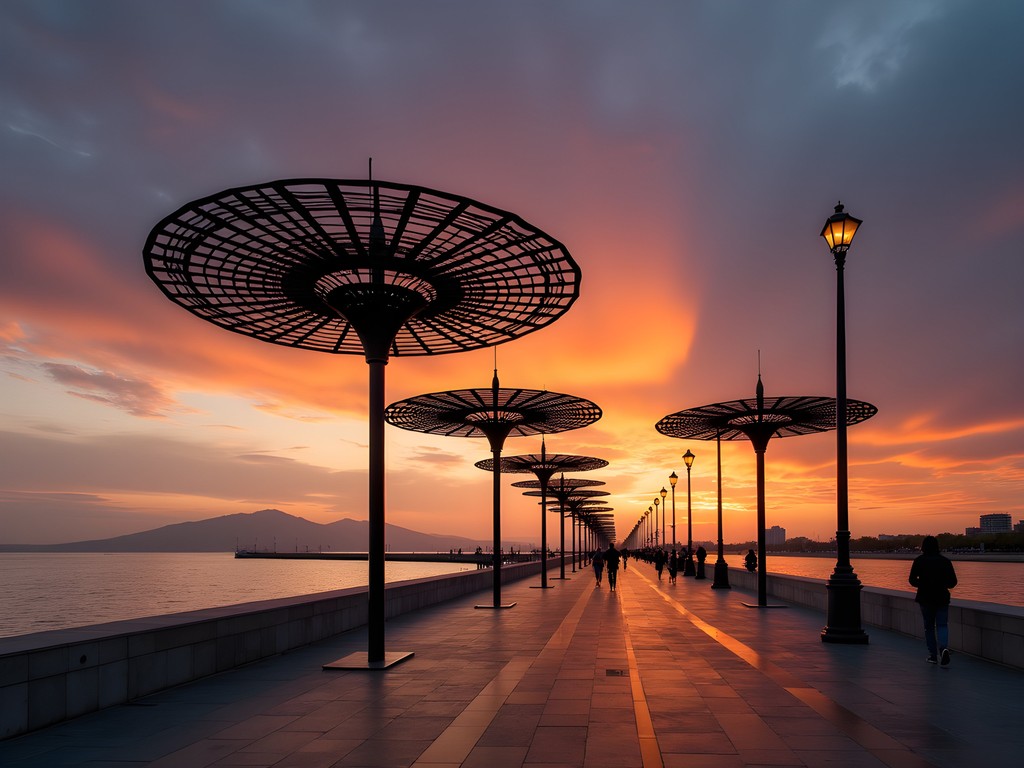
💡 Pro Tips
- The White Tower gets crowded—purchase tickets online in advance to skip the line
- For the best photos of the waterfront, visit during 'golden hour' before sunset
- Many locals take their evening walk (volta) along the promenade between 6-8pm—join them for an authentic experience
Day 1: Evening – Ano Poli & Sunset Delights
As the afternoon light begins to soften, it's time to ascend to Ano Poli (Upper Town), the only neighborhood that survived the devastating fire of 1917. While you could take a taxi, I recommend the climb through the winding medieval streets—each twist reveals another postcard-worthy view of terracotta rooftops cascading down to the sea.
The Byzantine walls that once protected the city now provide the perfect sunset-watching platform. Make your way to the Trigoniou Tower for panoramic views that have remained largely unchanged for centuries. During my first visit to this spot, an elderly local approached me with a thermos of homemade tsipouro (Greek spirit) and insisted I join him in a toast to the setting sun—a spontaneous moment of connection that epitomizes Greek hospitality.
For dinner, avoid the tourist traps and seek out Toixo Toixo, a hidden gem frequented by locals. Housed in a converted Ottoman-era home in Ano Poli, their modern takes on traditional Macedonian recipes are revelatory. The melitzanosalata (eggplant dip) here single-handedly changed my understanding of how complex this seemingly simple dish could be.
After dinner, take a moonlit stroll through the narrow lanes of Ano Poli. The Byzantine churches are beautifully illuminated at night, and the absence of crowds allows you to appreciate architectural details often missed during daytime visits. The Osios David church, with its rare 5th-century mosaic of a beardless Christ, is particularly magical after dark.
Before returning to your hotel, stop at one of Ano Poli's traditional kafeneions (coffee houses) for a Greek coffee and perhaps a slice of walnut cake. To Palio Hamam occupies a former Ottoman bathhouse and offers the perfect atmospheric end to your first day in Thessaloniki.
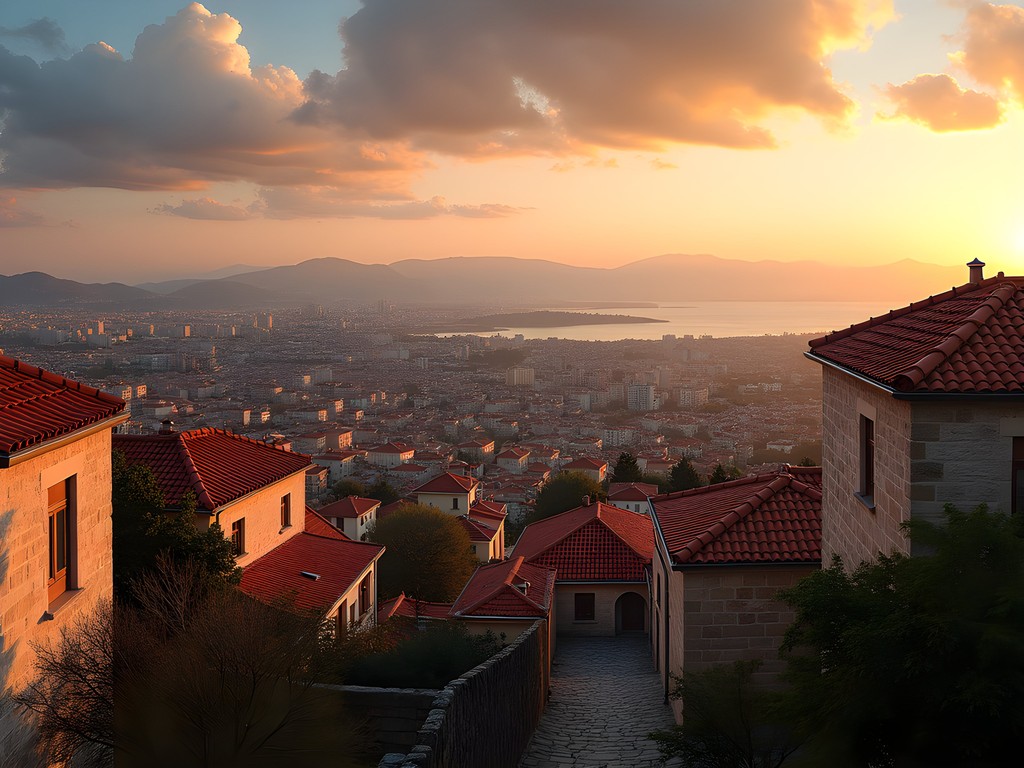
💡 Pro Tips
- Wear comfortable shoes with good traction—Ano Poli's cobblestone streets can be slippery
- Bring layers for evening as temperatures can drop significantly after sunset, especially in fall
- Many of Ano Poli's best viewpoints aren't marked on tourist maps—don't hesitate to ask locals for their favorite spots
Day 2: Morning – Markets & Culinary Discoveries
Begin your second day where Thessaloniki's heart truly beats—its vibrant markets. The Modiano Market and nearby Kapani Market have been the city's culinary epicenters since the late 1800s. Arriving around 9 AM ensures you'll witness the markets in full swing without the midday crush.
As an anthropologist with a particular interest in how food traditions reflect cultural exchange, these markets are my personal paradise. The vendors—many from families who have held the same stalls for generations—offer a living connection to Thessaloniki's multicultural past. Listen carefully, and you'll hear culinary terms reflecting the city's Ottoman, Jewish, and Balkan influences.
Take time to explore the cheese stalls, where you can sample varieties rarely exported outside Greece. The barrel-aged feta here bears little resemblance to the plastic-wrapped blocks found in supermarkets abroad. Don't miss the bougatsa workshops, where skilled artisans stretch phyllo dough to impossible thinness before filling it with custard, cheese, or minced meat.
After exploring the markets, treat yourself to a late breakfast at Full tou Meze, where the mpougiourdi (spicy baked feta with tomatoes and peppers) pairs perfectly with their house-made sourdough bread. I never visit without my food journal to document the flavor combinations that I'll later attempt to recreate at home.
Spend the rest of your morning exploring the Jewish Museum of Thessaloniki, which documents the history of what was once the largest Sephardic Jewish community in the world. Before WWII, Thessaloniki was known as the 'Jerusalem of the Balkans,' with Jews comprising nearly half the city's population. The museum's collection of photographs, documents, and religious artifacts offers profound insight into a cultural heritage nearly erased during the Holocaust. My first visit here fundamentally changed my understanding of the city's multicultural foundations.

💡 Pro Tips
- Arrive at the markets hungry—vendors will offer generous samples
- Bring cash in small denominations for market purchases
- Ask permission before photographing market vendors or their goods
Day 2: Afternoon – Aristotelous Square & Modern City Life
After a morning immersed in Thessaloniki's culinary and cultural heritage, it's time to experience its cosmopolitan present. Begin at Aristotelous Square, the city's grandest public space, designed by French architect Ernest Hébrard after the devastating fire of 1917. The elegant arcaded buildings with their distinctive mix of Byzantine and Western European elements frame a magnificent view down to the sea.
Take a moment to enjoy a freddo espresso (iced espresso) at one of the square's cafés—coffee culture here is elevated to an art form, with locals lingering for hours over a single cup. My preferred spot is Ouzeri Aristotelous, where the people-watching rivals any Parisian boulevard.
From Aristotelous, wander up Tsimiski Street for some of the city's best shopping. While international brands abound, I recommend seeking out local designers at concept stores like Salonika Handmade. Their handcrafted leather sandals, inspired by ancient Greek designs but updated for modern sensibilities, make perfect souvenirs.
For a deeper dive into Thessaloniki's artistic present, visit the Contemporary Art Center housed in the former Alaca Imaret Mosque. The rotating exhibitions frequently highlight the dialogue between Greek and Turkish artists—a fascinating exploration of cultural connections that transcend historical conflicts.
As afternoon transitions to evening, make your way to the Roman Agora, an archaeological site in the heart of downtown. Excavated relatively recently, these ruins include a theater, baths, and colonnaded courtyards that once formed the civic center of Roman Thessaloniki. What makes this site special is how seamlessly it integrates into modern urban life—locals cut through the ruins on their daily commutes, creating a living continuity with the past that feels quintessentially Greek.
Capture these juxtapositions of ancient and modern with your camera or smartphone. I've found that my clip-on smartphone lens allows me to capture architectural details that standard phone cameras might miss, especially the intricate Byzantine brickwork patterns that influence even contemporary buildings in the city.
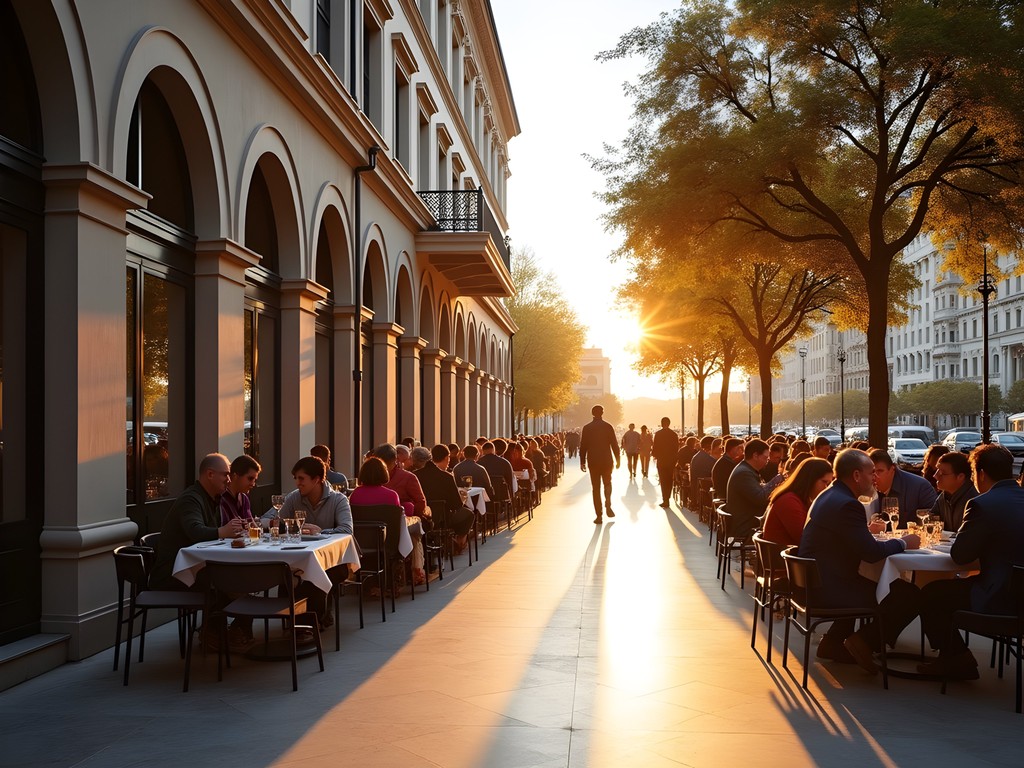
💡 Pro Tips
- Most shops close between 2-5pm for the traditional afternoon break—plan accordingly
- Freddo espresso is ordered by sweetness level: 'sketos' (no sugar), 'metrios' (medium), or 'glykos' (sweet)
- The Roman Agora offers free admission on the first Sunday of each month
Day 2: Evening – Sunset Farewell & Culinary Finale
As your 48 hours in Thessaloniki draw to a close, it's time for a proper farewell to this captivating city. Begin your final evening with a sunset cruise on the Thermaic Gulf. Several operators offer 90-minute excursions that provide unparalleled views of Thessaloniki's waterfront skyline. Watching the last light play across the Byzantine walls while sipping local wine on deck has become my personal tradition whenever I bid the city goodbye.
After your cruise, head to the Ladadika district for your final dinner. While this area caters to tourists, there are still authentic gems to be found. Ouzeri Mitsos has been serving traditional meze since 1947, and their seafood dishes—particularly the grilled octopus—showcase the Mediterranean at its finest. Request a table on their rooftop terrace for views that complement the flavors.
Dining in Greece is never rushed, so settle in for a proper farewell feast. Order several meze to share—the traditional approach—rather than individual main courses. My perfect final meal in Thessaloniki always includes dolmades (stuffed vine leaves), melitzanosalata (smoky eggplant dip), saganaki (fried cheese), and whatever fresh fish the waiter recommends.
After dinner, take one last evening stroll along the waterfront promenade. The White Tower is beautifully illuminated at night, and the sea breeze carries fragments of bouzouki music from nearby tavernas. This is when I most keenly feel Thessaloniki's unique character—neither fully European nor entirely Mediterranean, but something wonderfully in-between.
End your evening at Elatoria, a rooftop bar near Aristotelous Square that offers craft cocktails incorporating Greek spirits like mastiha and tsipouro. Their signature drink, the 'Byzantine Empire,' blends local herbs with honey and citrus in a combination that somehow captures Thessaloniki's essence in liquid form. It's the perfect place to reflect on your whirlwind 48 hours and begin planning your inevitable return.
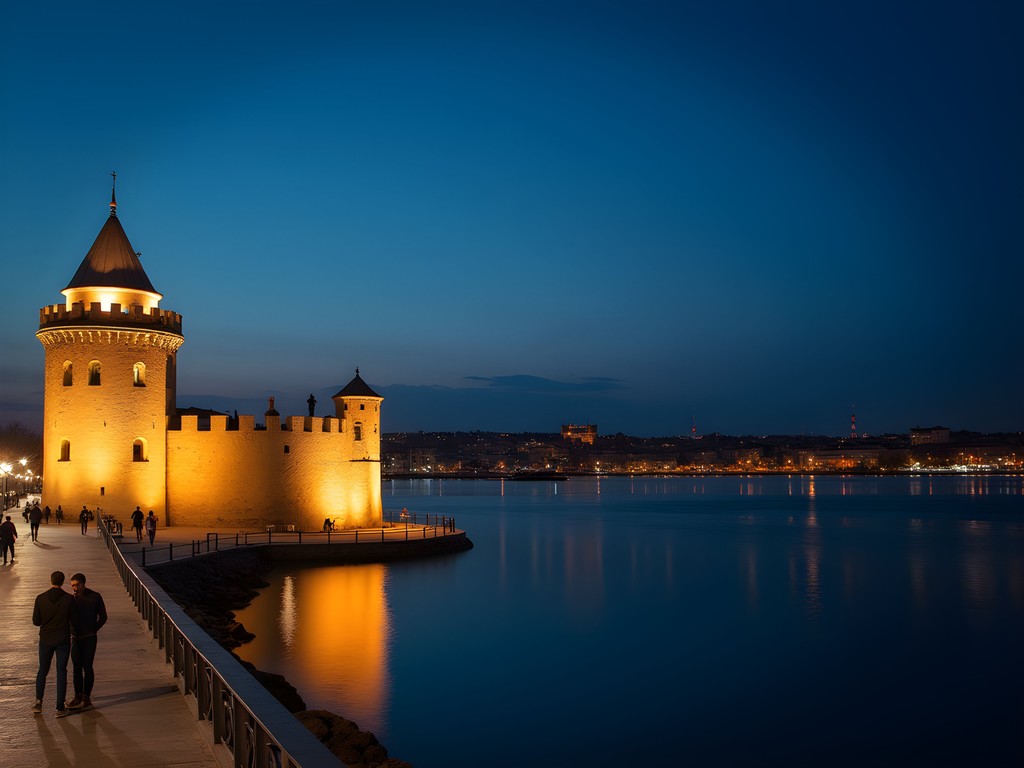
💡 Pro Tips
- Book sunset cruises at least one day in advance during peak season
- In authentic tavernas, asking for the check too early can be considered rude—embrace the leisurely pace
- Many rooftop bars have a minimum dress code—smart casual is usually sufficient
Final Thoughts
Forty-eight hours in Thessaloniki merely scratches the surface of this multifaceted city where Byzantine splendor meets modern Greek vitality. Unlike Athens or the islands, Thessaloniki doesn't perform for tourists—it simply invites you to participate in its authentic rhythms. The layers of history here aren't cordoned off behind museum glass but integrated into daily life, creating a rare continuity between past and present. As an anthropologist and perennial wanderer, I've found few places that reward curious travelers so generously with unexpected moments of connection. Whether you're tracing 1,500-year-old mosaics with your fingertips, sharing tsipouro with locals at sunset, or discovering your new favorite dish in a centuries-old market, Thessaloniki offers the kind of immersive cultural experience that transforms visitors into temporary locals. Until we meet again, Thessaloniki—φιλιά και αντίο (kisses and goodbye)!
✨ Key Takeaways
- Thessaloniki rewards slow exploration—prioritize depth over checking off attractions
- The Byzantine churches and archaeological sites provide essential context for understanding Greek culture beyond the classical period
- Fall offers the perfect combination of pleasant weather, fewer crowds, and vibrant local life
- Food is central to the Thessaloniki experience—budget time for long meals and market explorations
📋 Practical Information
Best Time to Visit
September to November
Budget Estimate
$75-150 per person per day (excluding flights)
Recommended Duration
2-4 days
Difficulty Level
Easy

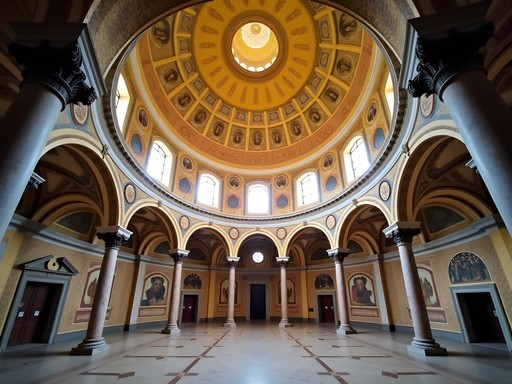
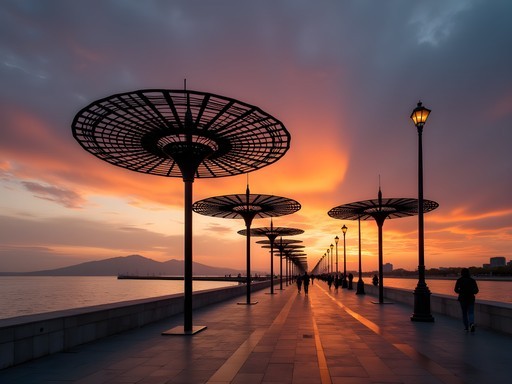
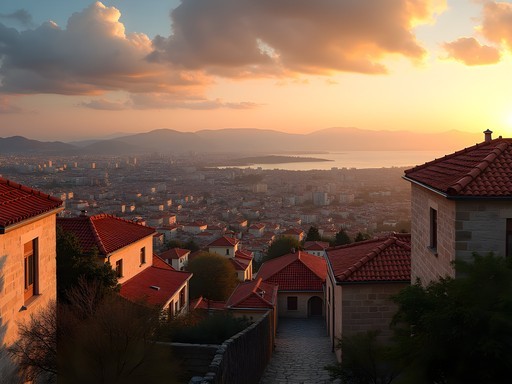
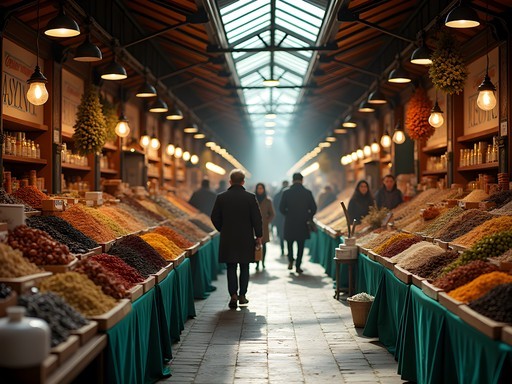
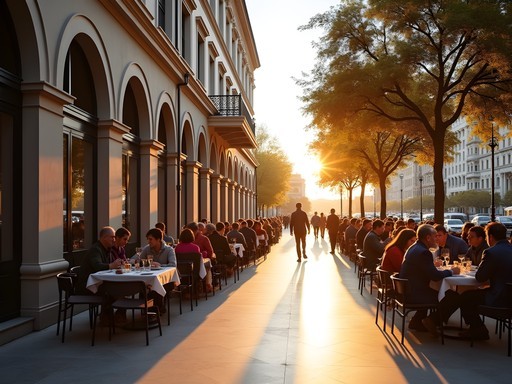
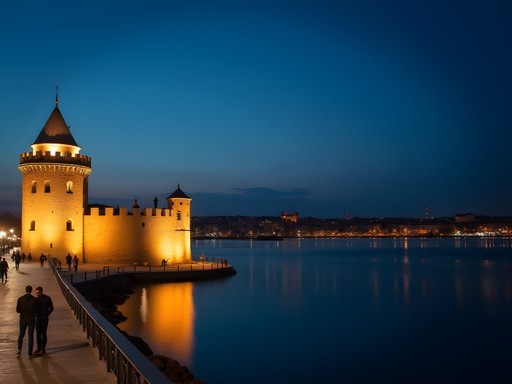


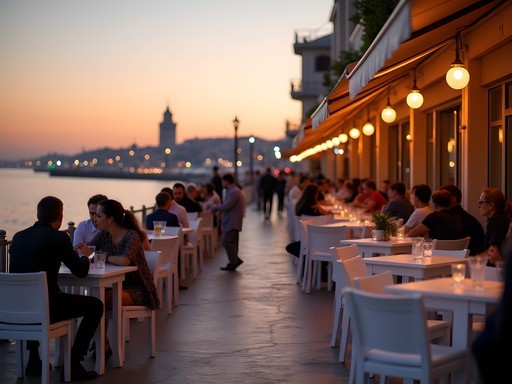
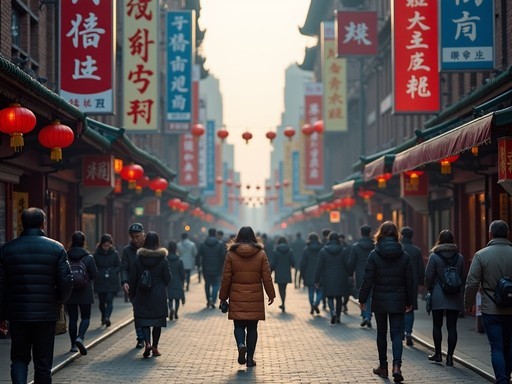
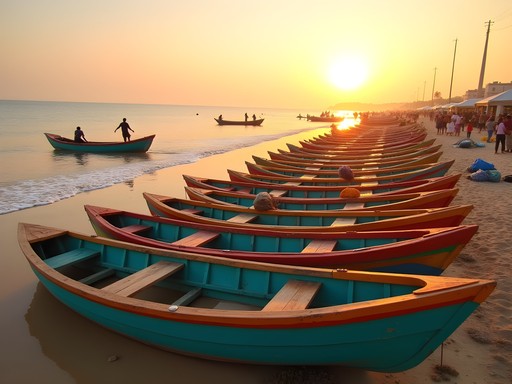
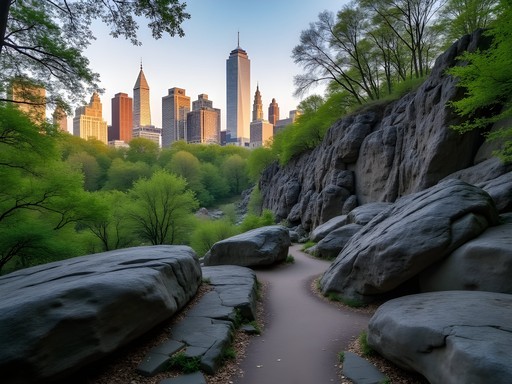
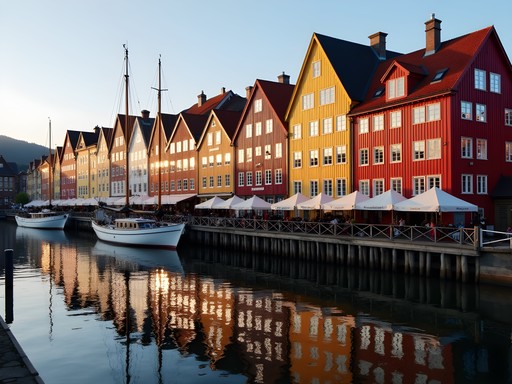
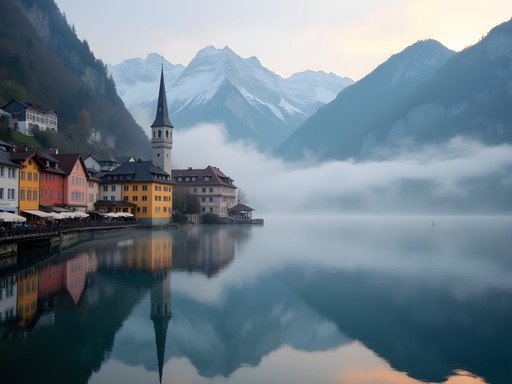
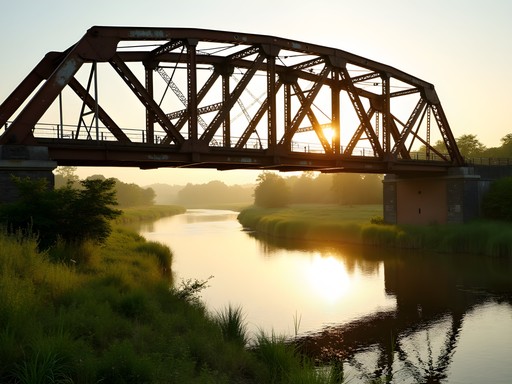
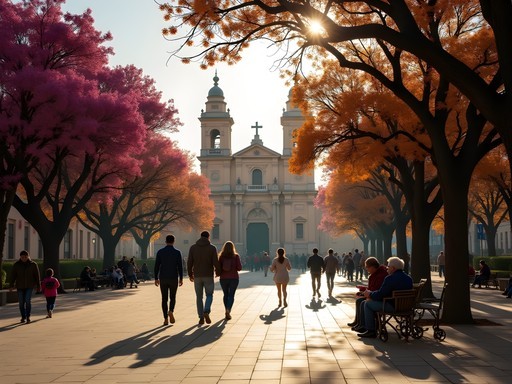
Comments
Nova Rice
Violet, this itinerary is spot-on! I stayed at the Electra Palace right on Aristotelous Square last fall and the location was absolutely perfect for this exact route. The rooftop bar there has incredible sunset views over the bay if anyone wants to splurge a bit. Also totally agree about the bougatsa - I went to Iordanis on Venizelou Street and it was life-changing. That flaky phyllo with the custard filling... I'm getting hungry just thinking about it! The Byzantine churches are criminally underrated compared to Athens. Did you make it to the Archaeological Museum? I could have spent an entire day there.
smartwalker
Thanks for the bougatsa rec! Adding it to my list
smartwalker
This looks amazing! Going there in March with my girlfriend. How easy is it to get around without speaking Greek?
Nova Rice
You'll be totally fine! Most people in the tourist areas and restaurants speak English. I was just there in October and had zero issues. Download Google Translate just in case, but honestly didn't need it much.
smartwalker
Awesome, thanks! That's a relief
nomadwanderer8789
Those sunset pics from Ano Poli are gorgeous! Saving this for my Greece trip next spring.
Violet Marshall
Spring is a perfect time to visit! The weather is lovely and you'll see all the flowers blooming in the city parks.
Kimberly Murphy
Brilliant itinerary, Violet! I visited Thessaloniki last spring and followed a similar route. One thing I'd add - the Archaeological Museum is absolutely worth the time if you can squeeze it in. I'd recommend getting there early to beat the tour groups. For anyone planning a trip, I found getting around super easy with the city map which has all the Byzantine sites clearly marked. The food scene is incredible too - don't miss trying bougatsa at Serraikon near Aristotelous Square. Their phyllo pastry is heavenly! Also, if you have an extra day, a trip to Vergina to see the royal tombs of Philip II (Alexander the Great's father) is mind-blowing and only about an hour away by bus.
vacationadventurer
Going to Thessaloniki in December - will it be too cold for the waterfront walks?
Kimberly Murphy
I was there last December! It can be chilly (around 5-10°C) but the waterfront is still lovely - just bring a good coat. The Christmas decorations in the city are beautiful and there are fewer tourists. Make sure to warm up with some Greek coffee in the cafes along Aristotelous Square!
vacationadventurer
Thanks so much! Can't wait to see the Christmas decorations!
explorenomad
Just got back from Thessaloniki last week and this itinerary is spot on! We also started at the White Tower and worked our way up to Ano Poli. That sunset view is absolutely magical. One tip I'd add - try the street food near Aristotelous Square. We had these amazing sesame bread rings (koulouri) from a vendor there that were perfect for breakfast on the go. Violet, did you get a chance to check out Modiano Market? That was one of my highlights!
Violet Marshall
Thanks for reading, explorenomad! Yes, I absolutely loved Modiano Market - it's mentioned in my Day 2 morning section. Those koulouri are addictive, aren't they? I think I had one every morning of my stay!
explorenomad
Totally missed that part! And yes, I'm still craving those koulouri weeks later!
Taylor Moreau
Excellent guide, Violet. Having visited Thessaloniki regularly for business over the past decade, I appreciate how well you've captured its essence for first-timers. One thing I'd emphasize is the city's remarkable public transport system - the bus network is comprehensive and quite efficient compared to other Greek cities. For those staying longer than your 48-hour itinerary, I'd recommend venturing to Halkidiki for the beaches if visiting in summer. The contrast between urban Thessaloniki and the pristine coastline just an hour away is quite striking. Also, for history enthusiasts, the Roman Forum (Ancient Agora) often gets overlooked but offers fascinating insights into the city's Roman period. Looking forward to your next Greek adventure!
adventuremaster
Going there next month! Is two days really enough? Worth adding a third?
summeradventurer
Definitely add a third day if you can! We wished we had more time for day trips - Vergina is amazing if you're into history.
Taylor Moreau
I'd second that recommendation. Two days gives you a taste, but three allows you to really appreciate the city. I'd suggest using that third day either for Vergina as mentioned or to explore the upper town more thoroughly. If you're planning to visit multiple sites, consider getting the archaeological pass - it saved me quite a bit on my last visit and is valid for three days.
beachdiver
Those sunset views from Ano Poli look amazing! Adding this to my list for next summer.
summeradventurer
Just got back from Thessaloniki last week! Your itinerary is spot on, Violet. We also started at the White Tower and worked our way through the Byzantine sites. The bougatsa you mentioned in your intro? Totally addictive - we ended up getting it three mornings in a row from this tiny bakery near Aristotelous Square. One tip I'd add: the Archaeological Museum was less crowded first thing in the morning. And don't skip Modiano Market - the spice vendors alone are worth the visit!
Taylor Moreau
Which bakery did you visit near Aristotelous? I'm heading there next month for a business trip and would love to try that bougatsa!
summeradventurer
It was called Serraikon - small place with just a few tables but the locals were lining up every morning. The cheese bougatsa is their specialty!
Venture X
Premium card with 2X miles, $300 travel credit, Priority Pass